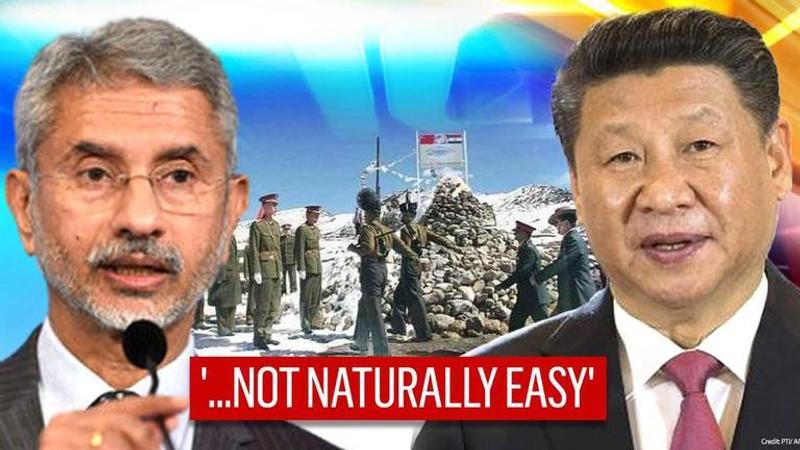Published 10:33 IST, November 1st 2020
Jaishankar tells China to honour pacts; opines on 'large civilisational states reemerging'
EAM Jaishankar categorically stated that the agreements between India & China 'must be respected scrupulously in their entirety' to restore normalcy in ties

External Affairs Minister S Jaishankar on Saturday categorically stated that the agreements between India and China 'must be respected scrupulously in their entirety' in order for normalcy to be restored in the ties between the two nations.
Addressing the Sardar Patel Memorial Lecture at the All India Radio-organized event on Rashtriya Ekta Diwas, EAM Jaishankar said that any attempt to unilaterally alter the status quo at the Line of Actual Control (LAC) was completely 'unacceptable' and that the relationship between the two countries couldn't be 'immune to changes in the assumptions that underpinned it'.
EAM Jaishankar, who was delivering the address in the lecture titled titled “India and the post-Covid world', highlighted that the three-decade-old stable ties between India and China were strained after the outbreak of the Coronavirus pandemic. Further, he also pointed out that the two countries addressed inherited challenges and new circumstances alongside 'peace and tranquility in the border areas provided the basis for expanded cooperation in other domain.'
“To restore normalcy, agreements between the two countries must be respected scrupulously in their entirety. Where the Line of Actual Control is concerned, any attempt to unilaterally change the status quo is unacceptable. The relationship cannot be immune to changes in the assumptions that underpinned it. Large civilizational states re-emerging in close proximity will not have naturally easy ties,” he said.
Talking about security, EAM Jaishankar said that suggesting sweeping solutions without laying firm groundwork could only make way for 'dramatic politics' and that it couldn't be serious policy. "Our experience in the last few years in expediting the creation of border infrastructure in the north shows how much difference sharper focus and better implementation can make”, he said. EAM Jaishankar also stated that India would give the 'utmost attention to the immediate neighbourhood' while also dealing with the 'different poles'.
During the lecture, EAM Jaishankar drew a parallel between the challenges faced by India at present and the issues it faced after the Partition and the Independence. He also announced that India's global approach post-COVID-19 would be more 'proactive' and would be 'driven by a global vision of its interests that it has steadily developed over the years'.
Defence Minister on LAC
During the monsoon session, Defence Minister Rajnath Singh made a statement on the LAC situation in both the Houses of Parliament. He affirmed that the Armed Forces were capable of facing any challenge from China. While acknowledging that the situation at the LAC is very different both in terms of the scale of troops involve and the number of friction points, he reiterated India's commitment for a peaceful resolution of the dispute. Moreover, the two countries' foreign ministers have reached a five-point consensus on continuing dialogue and quickly disengage, while honouring all existing agreements and protocol on China-India boundary affairs.
LAC tensions between India and China
On the intervening night of August 29-30, the Chinese People's Liberation Army (PLA) troops violated the previous consensus arrived at during military and diplomatic engagements. The Indian troops not only pre-empted the activity of the PLA on the southern bank of the Pangong Tso lake but also thwarted attempts to unilaterally change the facts on the ground, with 20 Jawans making the ultimate sacrifice and inflicting casualties on the Chinese side that Beijing hasn't yet revealed. On August 31, the MEA revealed that China once again engaged in provocative action even as the ground commanders of the two nations were trying to deescalate the situation. However, the Indian Army yet again foiled the attempt to unilaterally change the status quo.
Updated 10:54 IST, November 1st 2020




